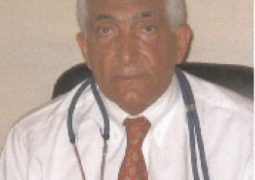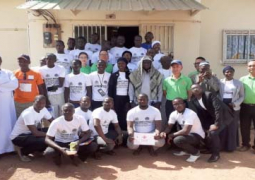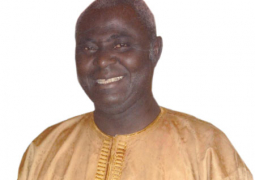The Pan African Parliament yesterday issued a statement on the occasion of this year’s World Press Freedom Day, commemorated yesterday 3rd May.
The statement, issued by the Communications Unit of the parliament, described the right to freedom of the press as one of the most important human rights, and an integral part of the right of freedom of expression.
Below we reproduce the full text of the statement by the Pan African Parliament:
Today, May 03, marks World Press Freedom Day. It also marks the twentieth anniversary of the Windhoek Declaration on press freedom in
The right to freedom of the press is one of the most important human rights. It is indeed an integral part of the right to freedom of expression. It is also seen as one of the cornerstones of democracy. Unfortunately,
In many African countries, authorities have little or no tolerance for press freedom. The media legislation which is in place in many African countries is either inherited from the colonial times, or was instituted by former military and civilian dictatorships to clamp down on criticism and dissenting voices.
This is despite the fact that Article 9 of the African Charter on Human and Peoples’ Rights states that “Every individual shall have the right to receive information”; and that “every individual shall have the right to express and disseminate his opinions within the law”.
Furthermore, the Declaration of Principles on Freedom of Expression in Africa, issued by the African Commission on Human and Peoples’ Rights at its 32nd Session, held in October 2002 in Banjul, The Gambia, stated that “Freedom of expression and information, including the right to seek, receive and impart information and ideas, either orally, in writing or in print, in the form of art, or through any other form of communication, including across frontiers, is a fundamental and inalienable human right and an indispensable component of democracy” and that “everyone shall have an equal opportunity to exercise the right to freedom of expression and to access information without discrimination”.
We have witnessed during the current political uprisings in
Equally, we have seen that the reaction to protests by state officials in countries affected has been the swift muzzling of the media using various methods.
Therefore, it is obvious that the media remains vulnerable to state abuse if its freedoms and rights are not entrenched in the constitutions of states. There is now evidence that more and more repressive, and automatically, states are resorting to the stricter control of the social internet based networks to shut out citizens’ voices that are calling for democratic reforms.
Since the Pan-African Parliament’s (PAP) mandate and objectives include the promotion of good governance, democracy, transparency, accountability and human rights in Members States of the African Union, the PAP is planning to launch a continent-wide campaign on media freedom in
It is hoped that this campaign will encourage African governments and legislators to continue working towards the democratization of our continent, and help create a more conducive atmosphere for our journalists to work in.
Read Other Articles In Article (Archive)
Tribute to Ransford Cline Thomas“
May 4, 2020, 3:00 PM




